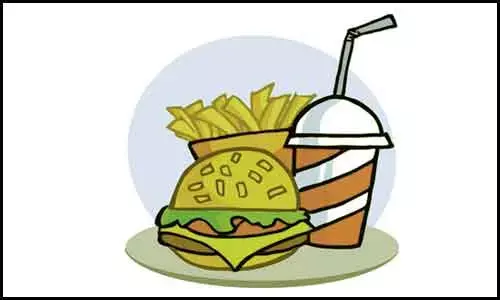- Home
- Medical news & Guidelines
- Anesthesiology
- Cardiology and CTVS
- Critical Care
- Dentistry
- Dermatology
- Diabetes and Endocrinology
- ENT
- Gastroenterology
- Medicine
- Nephrology
- Neurology
- Obstretics-Gynaecology
- Oncology
- Ophthalmology
- Orthopaedics
- Pediatrics-Neonatology
- Psychiatry
- Pulmonology
- Radiology
- Surgery
- Urology
- Laboratory Medicine
- Diet
- Nursing
- Paramedical
- Physiotherapy
- Health news
- Fact Check
- Bone Health Fact Check
- Brain Health Fact Check
- Cancer Related Fact Check
- Child Care Fact Check
- Dental and oral health fact check
- Diabetes and metabolic health fact check
- Diet and Nutrition Fact Check
- Eye and ENT Care Fact Check
- Fitness fact check
- Gut health fact check
- Heart health fact check
- Kidney health fact check
- Medical education fact check
- Men's health fact check
- Respiratory fact check
- Skin and hair care fact check
- Vaccine and Immunization fact check
- Women's health fact check
- AYUSH
- State News
- Andaman and Nicobar Islands
- Andhra Pradesh
- Arunachal Pradesh
- Assam
- Bihar
- Chandigarh
- Chattisgarh
- Dadra and Nagar Haveli
- Daman and Diu
- Delhi
- Goa
- Gujarat
- Haryana
- Himachal Pradesh
- Jammu & Kashmir
- Jharkhand
- Karnataka
- Kerala
- Ladakh
- Lakshadweep
- Madhya Pradesh
- Maharashtra
- Manipur
- Meghalaya
- Mizoram
- Nagaland
- Odisha
- Puducherry
- Punjab
- Rajasthan
- Sikkim
- Tamil Nadu
- Telangana
- Tripura
- Uttar Pradesh
- Uttrakhand
- West Bengal
- Medical Education
- Industry
High intake of processed food associated with extreme BP dipping

A study published in Nutrition, Metabolism and Cardiovascular Diseases suggest that a high processed foods (PF) consumption is associated with greater blood pressure (BP) variability and extreme dipping, while the consumption of unprocessed, minimally processed foods, and culinary ingredients (U/MPF&CI) and ultra-processed foods (UPF) is negatively associated with alterations in nocturnal dipping.
Ambulatory blood pressure monitoring (ABPM), a method of measuring BP over a 24-hour period, allowing for a more comprehensive assessment of cardiovascular risk markers than casual BP measurements. In a cross-sectional study by the team of Jéssica Benatti Ribeiro included 815 participants from the ELSA-Brasil cohort, the authors aimed to evaluate the association between food consumption by degree of processing and ambulatory BP.
The authors classified food consumption according to NOVA, a system that categorizes foods according to the extent and purpose of processing.
They found that consumption of unprocessed, minimally processed foods, and culinary ingredients (U/MPF&CI) made up the majority of participants' daily caloric intake (63.1%), followed by 10.8% processed foods (PF) and 24.8% ultra-processed foods (UPF).
They found a negative association between U/MPF&CI consumption and extreme dipping (when blood pressure drops significantly during sleep) and between UPF consumption and non-dipping (when blood pressure does not drop during sleep) and extreme dipping.
On the other hand, PF consumption was positively associated with extreme dipping and sleep SBP variability.
These results provide important insight into how different types of food may affect blood pressure, and suggest that minimizing consumption of processed foods and increasing intake of unprocessed, minimally processed foods, and culinary ingredients may have a beneficial impact on blood pressure.
Source:
Ribeiro., J. B., Miranda Hermsdorff., H. H., de Jesus Mendes da Fonseca., M., Molina., M. del C. B., Griep., R. H., & Juvanhol, L. L. (2023). Food consumption by degree of processing is associated with nocturnal dipping and blood pressure variability: the ELSA-Brasil study. In Nutrition, Metabolism and Cardiovascular Diseases. Elsevier BV. https://doi.org/10.1016/j.numecd.2023.02.007
Neuroscience Masters graduate
Jacinthlyn Sylvia, a Neuroscience Master's graduate from Chennai has worked extensively in deciphering the neurobiology of cognition and motor control in aging. She also has spread-out exposure to Neurosurgery from her Bachelor’s. She is currently involved in active Neuro-Oncology research. She is an upcoming neuroscientist with a fiery passion for writing. Her news cover at Medical Dialogues feature recent discoveries and updates from the healthcare and biomedical research fields. She can be reached at editorial@medicaldialogues.in
Dr Kamal Kant Kohli-MBBS, DTCD- a chest specialist with more than 30 years of practice and a flair for writing clinical articles, Dr Kamal Kant Kohli joined Medical Dialogues as a Chief Editor of Medical News. Besides writing articles, as an editor, he proofreads and verifies all the medical content published on Medical Dialogues including those coming from journals, studies,medical conferences,guidelines etc. Email: drkohli@medicaldialogues.in. Contact no. 011-43720751


